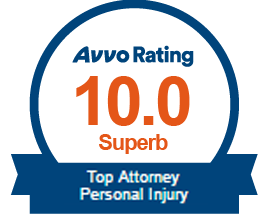Seeking to Understand Damages
“Damages,” within legal terminology, signify the monetary reparation owed to an individual who has suffered harm or losses due to the wrongful actions of another. While it is recognized that no amount of money can fully erase the pain, trauma, or memories associated with a serious injury incident, monetary compensation serves as society’s means of attempting to fairly restore an injured individual to a state of wholeness, simultaneously discouraging negligent or reckless conduct in the future.
In the context of a wrongful death claim, damages may encompass various forms of compensation, including the deceased’s prior pain and suffering, the fear of imminent death, and the loss experienced by surviving family members in terms of guidance, companionship, or income. Notably, under New York law, there is presently no provision for legal action based on the grief resulting from the loss of a loved one.
Car accidents provide a tangible example of why and how “damages” are awarded to an individual suffering due to the wrongful conduct of another. The regulations governing road use expressly prohibit drivers from needlessly endangering the public. In cases where reckless or negligent driving results in harm or fatality, the culpable party is held accountable for all resulting damages as per the provisions of New York State laws. Such accountability typically involves the provision of monetary compensation to the injured individual or the family of the deceased, often facilitated through the involvement of an insurance company that indemnifies and defends the liable parties. Additionally, the owner of the vehicle involved, even if not the one driving at the time, may also bear legal responsibility for the actions of the driver, a concept known as vicarious liability.
“Damages” encompass the costs associated with repairing the other party’s vehicle or property, compensation for injuries sustained, and payment to alleviate the pain suffered by the victim and/or make up for lost income. In most scenarios, payments for damages are facilitated by an insurance company on behalf of those legally responsible for the injuries or property damage. Individuals without insurance are obligated to directly compensate the affected parties for the harm caused.
An insurance policy represents a formal agreement between the insured individual(s), businesses, or entities and the insurance company (insurer), outlining the specific responsibilities of both parties in the event of a loss. This comprehensive document outlines the claims that the insurer is obligated to cover in accordance with legal provisions, with the insured party making an initial payment known as the premium, in exchange for the insurer’s commitment to indemnify against the defined risks.
If you lack this typed policy, you can reach out to the broker through whom you obtained the policy.
In the event of injury or property damage resulting from another person’s negligent behavior, consulting an experienced attorney is advisable to address any questions about damages. A local personal injury lawyer can offer the most knowledgeable guidance tailored to your case, adept at accurately assessing fault and damages, enabling you to determine the viability of your claim. Our initial consultations are complimentary, and we operate on a contingency basis, charging only upon successful resolution of your case. Please don’t hesitate to contact us today at 914-478-7777.
Peter DeFilippis, Esq.



